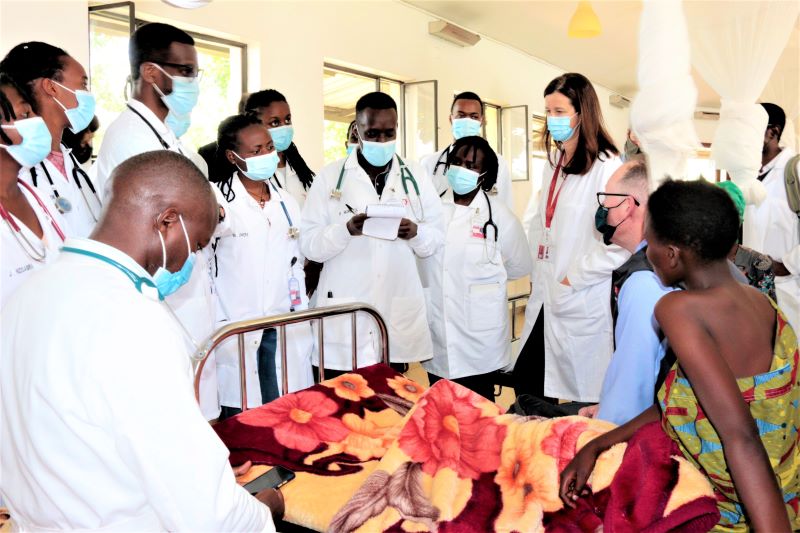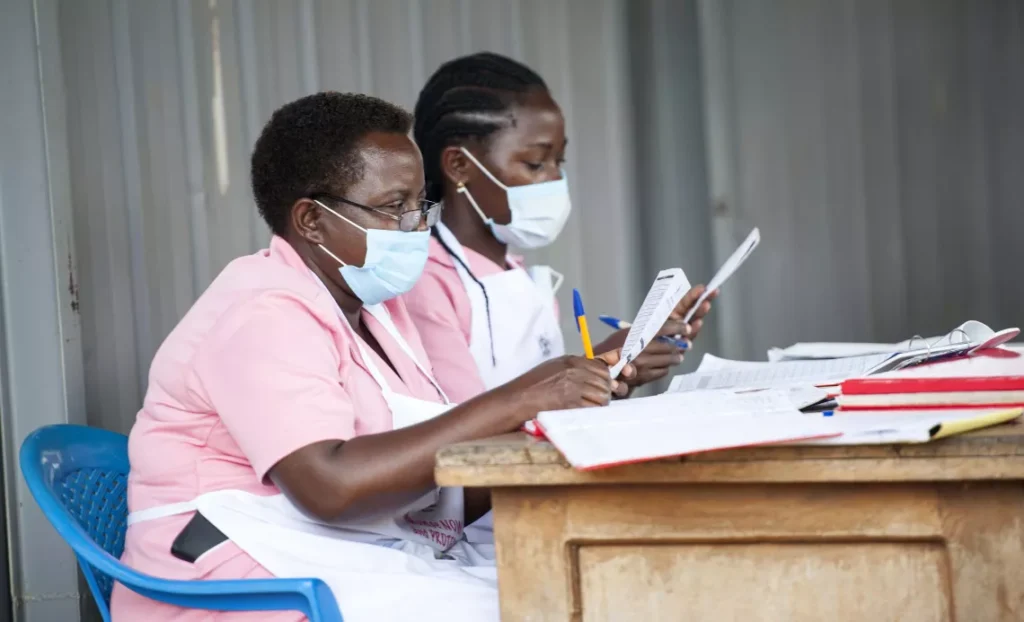Capacity Building of Health Workers in 254 Health Facilities & 5 hospitals in Eastern Uganda on NCD care, screening, diagnosis, referral and treatment.

📌 Project Title:
“Capacity Building of Health Workers in 254 Health Facilities and 5 Hospitals in Eastern Uganda on NCD Care, Screening, Diagnosis, Referral, and Treatment”
🎯 Project Goal:
To strengthen the capacity of frontline health workers in delivering quality, timely, and comprehensive care for non-communicable diseases (NCDs) by equipping them with the knowledge, tools, and systems required for early detection, management, and referral across 254 health facilities and 5 hospitals in Eastern Uganda.
📍 Geographic Focus:
Eastern Uganda, covering facilities in multiple districts including HC IIIs, HC IVs, and regional referral hospitals.
🔑 Core Program Activities
1. Needs Assessment and Training Planning
- Conduct a training needs assessment (TNA) across the 259 facilities to identify gaps in NCD knowledge and service delivery.
- Map existing staff capacity and define training modules based on MOH standards and WHO PEN (Package of Essential NCD Interventions).
- Develop a phased training rollout plan across the sub-regions.
2. Development and Customization of NCD Training Materials
- Customize MOH-approved training content on:
- Hypertension, diabetes, asthma, cardiovascular disease
- Early cancer detection (cervical, breast, prostate)
- Mental health and lifestyle counseling
- Translate key job aids and protocols into local languages where needed.
- Print clinical guidelines, referral algorithms, and screening checklists.

Training of Health Workers (Facility-Based and Offsite)
- Train over 800+ frontline health workers (clinical officers, nurses, midwives, laboratory staff) from 254 facilities and 5 hospitals.
- Use a cascade training model with master trainers and district mentors.
- Conduct interactive sessions on:
- NCD risk factor identification
- Patient education and counseling
- Use of diagnostic tools (BP monitors, glucometers, peak flow meters)
- Referral systems and data capture
4. On-Site Clinical Mentorship and Support Supervision
- Deploy clinical mentors to each district to offer hands-on mentorship, case reviews, and follow-up support.
- Integrate peer learning visits between high- and low-performing facilities.
- Support quarterly clinical audits and review meetings to assess quality.
5. Provision of Job Aids and NCD Screening Tools
- Distribute essential clinical job aids, screening tools, and patient tracking cards to each facility.
- Supply NCD corners with BP machines, glucometers, height/weight scales, screening registers, and counseling flipcharts.
- Introduce lifestyle counseling tools for diet, physical activity, and tobacco cessation.
6. Strengthening Referral and Linkage Systems
- Develop and roll out a referral and counter-referral mechanism between lower-level facilities and hospitals.
- Train staff on referral documentation, feedback loops, and emergency triage.
- Support integration with ambulance and community health structures.
7. Monitoring, Learning, and Data Use
- Support use of NCD-specific HMIS tools (e.g., HMIS 105, NCD registers).
- Train health workers on data-driven decision-making and indicator tracking.
- Facilitate quarterly review meetings to evaluate patient flow, case detection, and treatment initiation rates.

👥 Target Beneficiaries:
- 800+ health workers across 254 health centers and 5 district/regional hospitals
- Indirectly benefits over 2 million people served by the facilities
- District health teams, supervisors, and community health workers
📈 Expected Results:
- ≥90% of trained staff demonstrate improved knowledge and skills in NCD screening and management
- Early detection and treatment initiation increase by 40% across target districts
- Functional NCD referral systems in 100% of supported facilities
- Enhanced data capture and patient follow-up for chronic conditions
- Creation of a sustainable mentoring and peer support system
🌱 Sustainability Measures:
- Embed NCD training into district annual health plans and CME schedules
- Link trained staff to regional NCD coordinators and mentors
- Digitalize some training content for ongoing use on tablets/phones
- Advocate for facility and district ownership of NCD response efforts